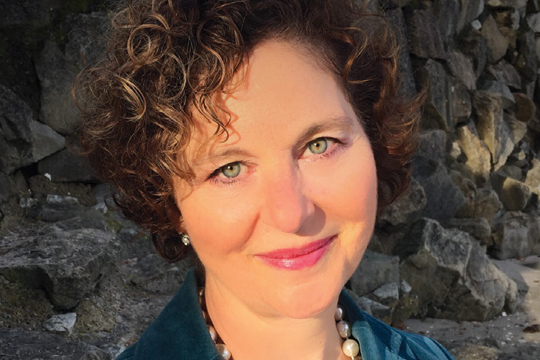
Finding new love is grand, but there are things to remember. People with children could risk accidentally disinheriting them, for example.
Lynne Butler recalls a client coming to her in absolute distress. The son of her recently deceased partner had his dad's body exhumed and moved to another cemetery, refusing to divulge the location.
“There was no legal recourse because that son was the executor,” the St. John‘s, N.L., lawyer recalls. “She wasn't married to him, she didn't have the right to be the executor of the estate. And his son did, so his son had the right to dispose of the remains.”
“You‘ve never seen anybody cry so much in your life as this poor woman.”
That the couple had been together for about 20 years was irrelevant. They didn't marry and hadn't developed wills acknowledging their new partner or their role in the estate. And that, in Newfoundland, left the heartbroken woman with no options.
Thankfully, Butler says, St. John‘s isn't that big. A legal assistant called around, located the cemetery and walked up and down its rows until he found the plot. But that distress could have been avoided by proper planning, a point Butler stresses for those developing relationships later in life.
People in second or subsequent relationships could risk accidentally disinheriting the children they had previously, defaulting their health decisions to someone not of their choice and putting their own financial health at risk. From there, the list of unforeseen consequences, including disputes on final resting places, may well unfold.
“People don‘t realize that they‘re the linchpin between the new family and the old and if they‘re gone, there's no relationship left, and it tends to be, sometimes, very fractious, over things you wouldn‘t even necessarily think,” Butler says.
Most of the people in second or subsequent relationships that Karin Mizgala has seen have adult children. And although many had solid plans and even wills, a new living arrangement could change that. If they marry in certain provinces, their wills are automatically invalidated and the new spouse becomes the heir in the absence of a will. That may well leave the deceased person’s children with nothing.
Be open from the beginning
Mizgala, CEO and co-founder of Money Coaches Canada, a network of advice-only financial planners, believes a solid relationship begins with both people being open about their financial situation. Discussions right off the top will help them avoid conflict and numerous complications down the road.
“So many people avoid the topic of money. And when you add the estate component, wills and all of that, people go even more radio silent,” Mizgala says. “I think it‘s particularly tricky when it‘s a second relationship because it‘s muddier.”
“Where you can go wrong is if you don‘t have the beneficiary designations, if you don‘t have a will that accurately reflects the desires of your current relationships… It‘s coming into the relationship with the understanding of what if the relationship breaks down?”
She acknowledges that talking to someone like a new spouse about money is uncomfortable, but Mizgala sees discussing assets and liabilities as a necessity to avoid problems down the road. First comes trying to determine how to approach the whole financial and estate picture, then comes the execution with a planner and lawyer.
In addition to creating or revisiting the will, it is also important to pay attention to whom is designated as beneficiary in financial documents such as RRSPs, tax-free saving accounts, pensions and life insurance. The name listed when that account was first opened years earlier may no longer be relevant.
There can also be advantages to having a spousal beneficiary. An RRSP, for instance, can roll tax-free to the spouse, but other assets might be better left to the children. Careful planning, says Mizgala, can help those being left behind maximize the value of the assets.

Karin Mizgala, CEO and co-founder of Money Coaches Canada, recommends new partners start by being completely open about their financial situations.
She encourages a co-ordinated approach between the development of the will and the beneficiary designations, which fall outside the will, to avoid contradictions and confusion. Something simple, such as joint accounts, can also make a big difference. A joint account designation allows that asset to roll to the other person through the right of survivorship. At the very least, it allows access to some funds until the estate is settled.
A domestic or marriage contract or pre-nuptial agreement can cover off what-if events such as a disruption to the relationship, death or ill health. Those agreements are best made early on when everyone is on good terms. The resulting plan can lay out the intentions of both.
Another consideration for those entering new, enduring relationships is to formally end a previous marriage to prevent complications in a new relationship, says Quebec attorney Marc Gélinas, who runs a virtual practice through his law portal, www.avocat.qc.ca. Important legal obligations to the earlier marriage will follow an individual who doesn’t divorce and doesn’t craft a new will when they partner with someone new.
When an individual dies without having divorced their previous spouse, for instance, their share of the house they’ve been sharing with their latest common law spouse defaults to the previous spouse and the children. A will creates additional weight. “If you get divorced and you don’t have a will, your ex-wife is the legal heir. She gets half of everything and the kids get half, which means the new common-law wife gets nothing,” says Gélinas. “There could be so many weird situations and we want to avoid those type of things.”
Options in Quebec
In Quebec, residents have three will options — each has pros and cons. A holographic will is handwritten, signed and dated and does not require witnesses. A second option is a will signed by two witnesses, which can be purchased online for $49. The disadvantage of a will before witnesses or a will done by freehand is that it must be verified upon death, which could cost the estate up to $800.
Those two options are great for younger people who fully intend to alter their will in the near future. Gelinas suggests the third option, a notarized will, as the best for seniors because all the work and costs are done in advance and probate is not necessary. But anything is better than no will at all, even for those with no assets, because that triggers the Quebec government to appoint the public curator, for which the estate is charged.
The Quebec government also oversees and mandates advance medical directives, which provide consent for care in anticipation of incapacity. Residents apply for the necessary form online. The information is then uploaded into a database for free. In other provinces, designating someone to oversee health and personal care is done through a power of attorney, a personal health care directive or a representation agreement.
Toronto lawyers Kimberly Whaley and Bryan Gilmartin have seen the gamut of challenges that can result from complex family units. They range from allegations of undue influence by the new spouse or children, claims for the surviving spouse, division of family property and challenges to the will as a result of a previous divorce and court claims after death for “proper and adequate support.”
Whaley points out that every province has dependent support or dependent relief legislation.
“Yes, you need a will, yes you need a current will. You want that will to make sense,” Whaley says. “In doing that planning you want to make sure all of your designations are properly dealt with and title to your house is properly dealt with and that you do power of attorney documents for the planning for incapacity so, should assets need to be managed, there is somebody that is honest and trustworthy to do that job and is not in conflict with the beneficiaries [or] the beneficiaries and named executor under the will.”
Getting it all down in writing is critical. But it’s also good to make the intent clear by sitting down with family members and discussing the situation. That becomes particularly important when there is a complex family unit. That gives the testator the opportunity to lay out what they’ve done and why, leaving no room for speculation later.
Tools to Help
- The federal government has developed an interactive assets and liabilities worksheet for all couples in the form of a spreadsheet to allow for easy calculations. The website points out that are different laws about dividing shared property and assets for common-law couples and married couples. Of particular interest is what happens to property and assets.
- Money Coaches Canada suggests the primary consideration for those remarrying is how the household assets are combined, planning for the future, managing cash flow, the retirement picture and estate planning and insurance.
- Refer to You and Your Survivors, Federal Retirees’ estate planning workbook.

